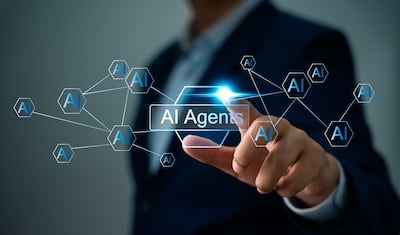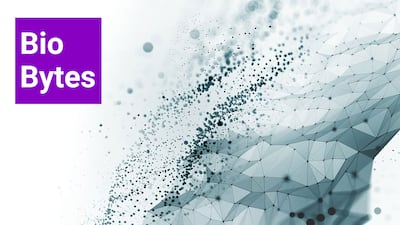As former vice president of artificial intelligence at Meta and former CEO of BenevolentTech, the predecessor to the London-based AI-based drug discovery company, BenevolentAI Limited, Jerome Pesenti has a unique perspective on technology and corporate culture both in big tech and in biopharma. Pesenti's experience in AI also includes helping develop IBM Watson’s natural language processing and automated machine translation software. Currently, he is focused on generative AI-based education-tech startup, Sizzle AI, but Pesenti is also keeping one hand in the biopharma field as a director of the French-American life sciences company, Owkin.

Pesenti was attracted to Owkin because of its unique approach to data collection and analysis, namely the process of federated learning. Federated learning draws on datasets from multiple sources to train proprietary machine learning models. The premise – and promise – of this approach is for each participant to benefit from a larger pool of data than their own, resulting in increased machine learning performance.
The approach preserves privacy and data ownership by keeping proprietary data on participants' servers, with only algorithms and predictive models traveling to Owkin’s servers. [A# IV146743] Owkin is one of the notably financially successful companies in the AI space and achieved unicorn status after deals with Sanofi – which, in addition to a partnership for discoverer of novel targets and therapeutics for four cancer types, made an $180m equity investment – and Bristol Myers Squibb, to improve that company’s clinical trial designs. Also see "Deal Watch: Sanofi To Tap Owkin’s AI, Machine Learning In Oncology" - Scrip, 18 November, 2021.
In Vivo spoke with Pesenti about generative AI, barriers to integrating these technologies in biopharma, and what he learned during his time at Meta.
What are you excited about in terms of the value of genAI in biopharma?
One use case I am very excited about in using genAI in biopharma is in making vast amounts of domain knowledge accessible and relevant to scientists and in generating new proteins or molecules. This can help predict drug-target interactions, improve molecular design and optimization, predict protein folding, and understanding of complex biological systems, including disease mechanisms.
Owkin has a genAI target discovery engine that I’m excited about. It can help identify novel candidate targets for patient subgroups by applying large language models to multimodal patient data and aggregating causal evidence from existing knowledge. This significantly expedites the drug discovery process, potentially leading to the development of new medicines, therapies, and treatments, and matching the right patient to the right drug.
What learnings did you take from your time at Meta that can be applied to biopharma?
I’ve been in the tech world for a long time and I’ve heard a lot of people talk about data in their decision-making process. When you’re a small startup or you’re a B2B vendor, you talk about it, but you don’t necessarily do it. At Meta, they do it. There’s a passion at Meta for data-driven decision-making. So, that’s the first piece of learning, that you need to actually use the data in decision-making.
The second learning that I got from my time at Meta is seeing the amazing power of AI. Companies like Meta and Google have proven in the past 10 years that AI systems can have tremendous impact on growth. They throw an immense amount of data at their algorithms and get results they use to guide the creation of content that’s compelling and engaging for individuals, and to create ads that are actually relevant to people. So, in that context, AI has a tremendous impact and an enormous return on investment and it is used to optimize processes.
What are the biggest barriers the biopharma industry faces as it adopts genAI?
The biggest challenge for using genAI in drug discovery is a cultural one, not necessarily a technological one. The technology has the potential to be game-changing.
You can think of the drug discovery process as a very long sequence of decisions on whether to take a program to the next step. The challenge I see is that a lot of these decisions are based on intuition. But if you want to really address the biggest problem, which is attrition, and the fact that you put a lot in the beginning of the funnel and little comes out at the end, you need to make decisions differently. There is an opportunity to leverage data every step of the way. A place like Meta is completely data-centric and every decision is made by analyzing information, figuring out what is causing a delay and making changes based on the data. But I believe this is not exactly what is happening today in drug discovery, and that’s what could make a big change in terms of benefiting from AI.
In addition to the cultural challenge of placing data at the center of an individual company, the biopharma industry as a whole may not have a data-centric view. If you look at all the steps in the drug development process, no single company has all the data to optimize all the steps. The future is for companies to combine their data. What I love about Owkin is that they created a platform, a mindset, where they can put the data together to everyone’s benefit. That is an example of a mindset shift and a change in dynamic that will potentially turn the industry around.
Do you see AI replacing some elements of human expertise?
Gen AI is a promising tool that can significantly impact the industry and potentially accelerate breakthroughs and advancements, but we are 100 years away from automating the drug discovery process. For now, you need the expertise of biologists and chemists. There’s no question about this.
The question is, are we making decisions differently with AI. There is a saying in AI that all models are wrong, but some are more useful than others. In other words, models are often used to justify human decisions, rather than decisions being made primarily based on model outputs. Human intuition is limited and biased. Biopharma companies need processes where they put data in and get information out, which humans can evaluate. If you have the decision process essentially human-driven, the added benefit of AI is marginal. In big tech, the added value of AI is critical because they place the data at the center. So, the partnership between humans and AI in biopharma needs to change. It can’t just be humans completely in the driver’s seat and AI making some nice recommendations that we then decide to use or not.
Why is there so much hype around GenAI in biopharma? Is it Justified?
Using existing genAI technology in drug discovery has the potential for a lot of added value and many companies, including Owkin, are doing that. Owkin uses it to analyze very high-density patient data, for example. What I’m more skeptical about is whether companies are consistently integrating AI, or whether they see it as just a nice thing to have. The technology is there, the question is how it is used and whether people are really delegating some of the decision-making to a data-driven process.







